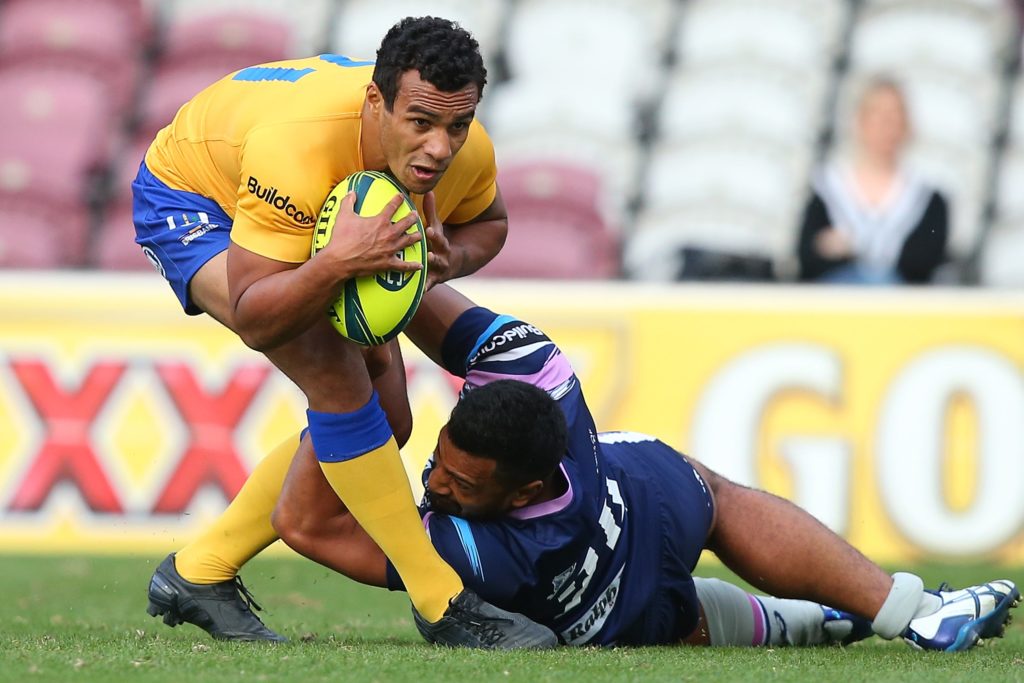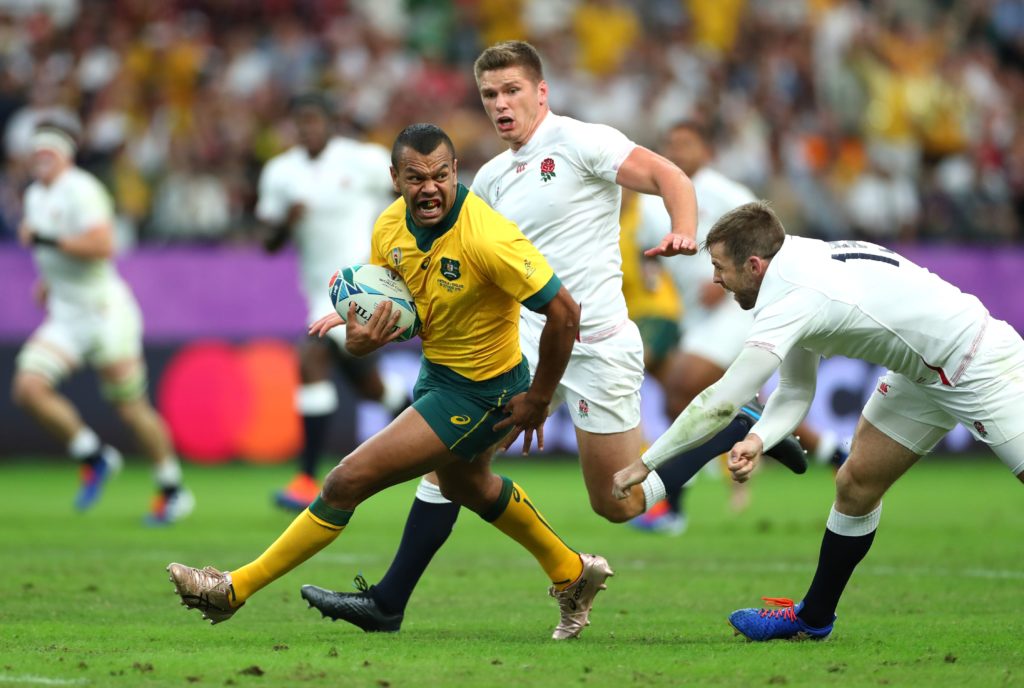One of the reasons why I’m so optimistic about the future of rugby in Australia is because it looks like club rugby is going to be receiving a pretty major boost in exposure thanks to the new broadcast deal.
I was lucky enough to be involved in Australia’s two attempts at creating a sort of mid-tier competition that could sit below Super Rugby.
It was a great initiative and I completely understand the idea behind both the Australian Rugby Championship (ARC) and the National Rugby Championship (NRC) – but I’m also not surprised that both have been scrapped either.
I played in the ARC for the Ballymore Tornados when I was 19, way back in 2007, and I loved the concept. I’d just come off the back of playing in a Super Rugby season where I was just on the bench and getting limited minutes. The idea of playing in a competition that was above club rugby, and obviously slightly below Super, was amazing – especially because I was going to be the starting halfback for the team at the time.
They definitely blew the budget out on that competition though. We were treated like Super Rugby players, we stayed in nice hotels, travelled inter-state and flew everywhere – financially, it just wasn’t going to be sustainable. Nobody was surprised when the competition lasted just one season.
I think they were a little more sensible with the NRC, which didn’t start up until 2014, but that’s also gone out the window now and I have a pretty good idea why.
When they conceived the two competitions, I think they seriously undervalued how important a team’s history is in generating interest from fans.

Nobody knew who the Ballymore Tornados were, or what they stood for. They’d basically just been created out of thin air. It was a similar story for Brisbane City, my later team.
They were obviously trying to follow the model that existed across the ditch in some ways, but New Zealand’s NPC is contested by teams with over 100 years of history and decade-long rivalries. The ARC and the NRC were essentially trying to manufacture that artificially and they were just never going to catch on.
That doesn’t mean we can’t have something like the NPC in Australia, but we should build upon the structures and competitions we already have in place – which is what I think they’ll end up doing with this potential inter-state club competition that’s been talked about.
That passion, that tribalism, I think that’s what we need to tap into. For me, it’s incredibly promising that Rugby Australia has identified one of the strengths in the game is the commitment and passion at grassroots level.
Will Genia
Playing for the Reds, we’d often have really strong support, especially when we were successful, but it doesn’t compare at all to when you go down to your local club and they have GPS play Brothers, and you hear the Brothers fans who just love their team.
That passion, that tribalism, I think that’s what we need to tap into. For me, it’s incredibly promising that Rugby Australia has identified one of the strengths in the game is the commitment and passion at grassroots level, which can only do well for the Super Rugby teams, and then, obviously, transition up towards the Wallabies as well.
Because we absolutely do need some sort of bridge between high school and Super Rugby.
You see a lot of kids, 16 or 17-year-olds, picking up long-term contracts with Super teams and they suddenly go from playing all this rugby at school to just holding tackle bags at training for two or three seasons – meanwhile, their local club is playing games week-in and week-out.
Club rugby is the first time you actually get to compete with fully-grown adults, and that’s a completely different ball game to just playing against other teenagers. If you skip that level completely, you miss out on all these lessons that you then have to try and catch up on in a high-performance environment.
A lot of the time, it can break a kid’s spirit. They think, “Oh, I can’t do this. I’m not built for this,” but it’s not necessarily that. It’s just that they skip that level which allows them to build that extra little bit of skill set, and confidence, and understanding.

If you chuck a young guy who’s not played senior rugby before into a Super game against the Crusaders, he’s absolutely going to get torn a new one and that’s just going to kill his confidence. What he won’t realise is that’s all part of his learning process, but because you’re in an environment where you’re so heavily scrutinized because of the pressure by the media, the coaches, your teammates, you just think to yourself, ‘No, I’m not going to put myself in a position to fail. I’m not going to express myself when I get out there. I’m not going to try things.’
If you play that level of club rugby, you don’t have the scrutiny, that pressure. You can go out and try things, and develop your game, and make mistakes in order to grow, knowing that you can make those mistakes and you can fail because you’re not getting absolutely destroyed by the media the next day after not playing well.
If you play that level of club rugby, you don’t have the scrutiny, that pressure. You can go out and try things, and develop your game, and make mistakes in order to grow.
Will Genia
I think Super Rugby teams need to be a little bit more aware of that. If they sign an 18-year-old kid, there’s a small chance he’s going to be an absolute superstar and be able to play at that top level right away, your Kurtley Beales and Quade Coopers – they were a little bit rough around the edges, but they could still play. Other kids who you sign out of school – most of them, in fact – you’ve got to realise that they’re probably not going to be able to compete straight away but you can still sign them up, but we need to get them to go back and play club rugby.
Now, the top schoolboys skip club rugby, sometimes it’s probably because they think it’s beneath them, but that’s definitely not true at all. If Rugby Australia can give a little bit more exposure to club rugby, and invest in the systems that already exist, then we’ll be able to give these kids the perfect opportunity to prepare for Super Rugby down the track. And if they don’t end up playing Super Rugby then that’s not a big deal either – there’s more to the game than just the professional side of it.
I know they still do some ‘friendly’ pre-season matches between clubs from different states but that’s not the same thing as having a proper major cross-over event. I’ve heard plenty of stories from Matt Giteau about what his early years were like, being a part of a very successful Canberra Vikings team, about how they would play teams from New South Wales of Queensland, and that’s what we need to tap back into.
With a little bit of investment, coupled with all the passion that already exists for the clubs around Australia, I’m confident that we can have rugby thriving again. It seems like we’re heading in the right direction, so I’m looking forward to seeing what comes next.



Comments
Join free and tell us what you really think!
Sign up for free